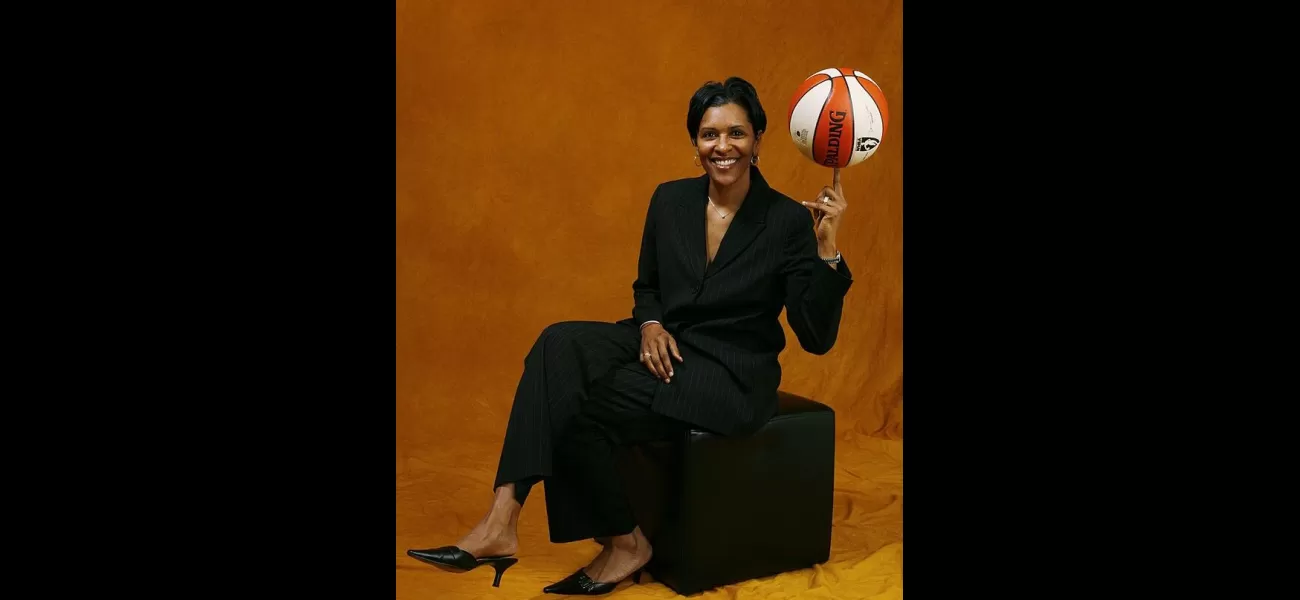Caitlin Clark's historic NCAA scoring record brings attention to the issue of overlooked Black women in official statistics.
Records will have individual descriptions and qualifiers, but discussing Clark's record will bring attention to forgotten scoring geniuses.
February 18th 2024.

On February 15th, Caitlin Clark made headlines by breaking the NCAA's All-Time scoring record with a remarkable 49-point performance. While many are now discussing Clark's potential success in the professional women's game, there is also a growing conversation about the women who were left behind by the NCAA.
According to NPR, Lynette Woodard and Pearl Moore, who both played in the late 1970s and early 1980s, actually scored more points during their college careers. Woodard put up an impressive 3,649 points and Moore an astounding 4,061, despite not having the three-point line at their disposal. However, since both of these records were set before the NCAA recognized women's collegiate sports, they are not officially recognized by the organization. A spokesperson for the NCAA explained to The Wall Street Journal that they do not include statistics from non-NCAA associations in their record books, regardless of gender.
After her successful college career, Woodard went on to become a two-time Olympian, winning a gold medal in 1984 as the team captain alongside legendary players like Cheryl Miller and Pamela McGee. She also made history by becoming the first woman to play for the Harlem Globetrotters and continued her career playing professionally overseas before eventually joining the WNBA. In a statement to NPR, Woodard shared her excitement for Clark's accomplishment but also expressed her hope that the achievements of other women in the sport can also be recognized.
"I applaud Caitlin for everything she has done and look forward to watching her score many more points for years to come," Woodard wrote. "But I also hope that we can shine a light on the pioneers who paved the way before her. Women's basketball has a rich history that goes back even before the NCAA's involvement."
Moore's record may not be as well-known, but it has recently been brought to light by NCAA player Lauryn Taylor, who pulled down a record-breaking 44 rebounds on the same day that Clark set her scoring record. During her college career, Moore was a four-time Small College All-American and went on to play for two teams in a league that preceded the WNBA, the Women's Professional Basketball League. In a recent interview, Moore expressed her support for Clark and her hope that she will break both of their records.
"Records are made to be broken," Moore stated. "I finished college at 22 and I'm 66 now, so that record has been around for 40 years. If Caitlin breaks it, good for her."
Even Stanford coach Tara VanDerveer, who holds the record for the most wins in NCAA history for both men and women's programs, believes that Woodard's record should still be considered the ultimate achievement until it is surpassed.
"I think the overall record by Lynette Woodard is THE RECORD," she told The Wall Street Journal.
For now, all of these records will have their own separate descriptions and qualifiers. However, the discussions surrounding Clark's accomplishment are shedding light on the forgotten talents of these scoring geniuses, ensuring that their names will continue to be remembered and celebrated alongside Clark's record-breaking performance.
In a world where women's achievements in sports are often overshadowed and overlooked, it's heartening to see these extraordinary athletes being recognized and their legacies kept alive. As we celebrate Clark's success, let's also remember the trailblazers who came before her and paved the way for future generations of women in sports.
According to NPR, Lynette Woodard and Pearl Moore, who both played in the late 1970s and early 1980s, actually scored more points during their college careers. Woodard put up an impressive 3,649 points and Moore an astounding 4,061, despite not having the three-point line at their disposal. However, since both of these records were set before the NCAA recognized women's collegiate sports, they are not officially recognized by the organization. A spokesperson for the NCAA explained to The Wall Street Journal that they do not include statistics from non-NCAA associations in their record books, regardless of gender.
After her successful college career, Woodard went on to become a two-time Olympian, winning a gold medal in 1984 as the team captain alongside legendary players like Cheryl Miller and Pamela McGee. She also made history by becoming the first woman to play for the Harlem Globetrotters and continued her career playing professionally overseas before eventually joining the WNBA. In a statement to NPR, Woodard shared her excitement for Clark's accomplishment but also expressed her hope that the achievements of other women in the sport can also be recognized.
"I applaud Caitlin for everything she has done and look forward to watching her score many more points for years to come," Woodard wrote. "But I also hope that we can shine a light on the pioneers who paved the way before her. Women's basketball has a rich history that goes back even before the NCAA's involvement."
Moore's record may not be as well-known, but it has recently been brought to light by NCAA player Lauryn Taylor, who pulled down a record-breaking 44 rebounds on the same day that Clark set her scoring record. During her college career, Moore was a four-time Small College All-American and went on to play for two teams in a league that preceded the WNBA, the Women's Professional Basketball League. In a recent interview, Moore expressed her support for Clark and her hope that she will break both of their records.
"Records are made to be broken," Moore stated. "I finished college at 22 and I'm 66 now, so that record has been around for 40 years. If Caitlin breaks it, good for her."
Even Stanford coach Tara VanDerveer, who holds the record for the most wins in NCAA history for both men and women's programs, believes that Woodard's record should still be considered the ultimate achievement until it is surpassed.
"I think the overall record by Lynette Woodard is THE RECORD," she told The Wall Street Journal.
For now, all of these records will have their own separate descriptions and qualifiers. However, the discussions surrounding Clark's accomplishment are shedding light on the forgotten talents of these scoring geniuses, ensuring that their names will continue to be remembered and celebrated alongside Clark's record-breaking performance.
In a world where women's achievements in sports are often overshadowed and overlooked, it's heartening to see these extraordinary athletes being recognized and their legacies kept alive. As we celebrate Clark's success, let's also remember the trailblazers who came before her and paved the way for future generations of women in sports.
[This article has been trending online recently and has been generated with AI. Your feed is customized.]
[Generative AI is experimental.]
0
0
Submit Comment





